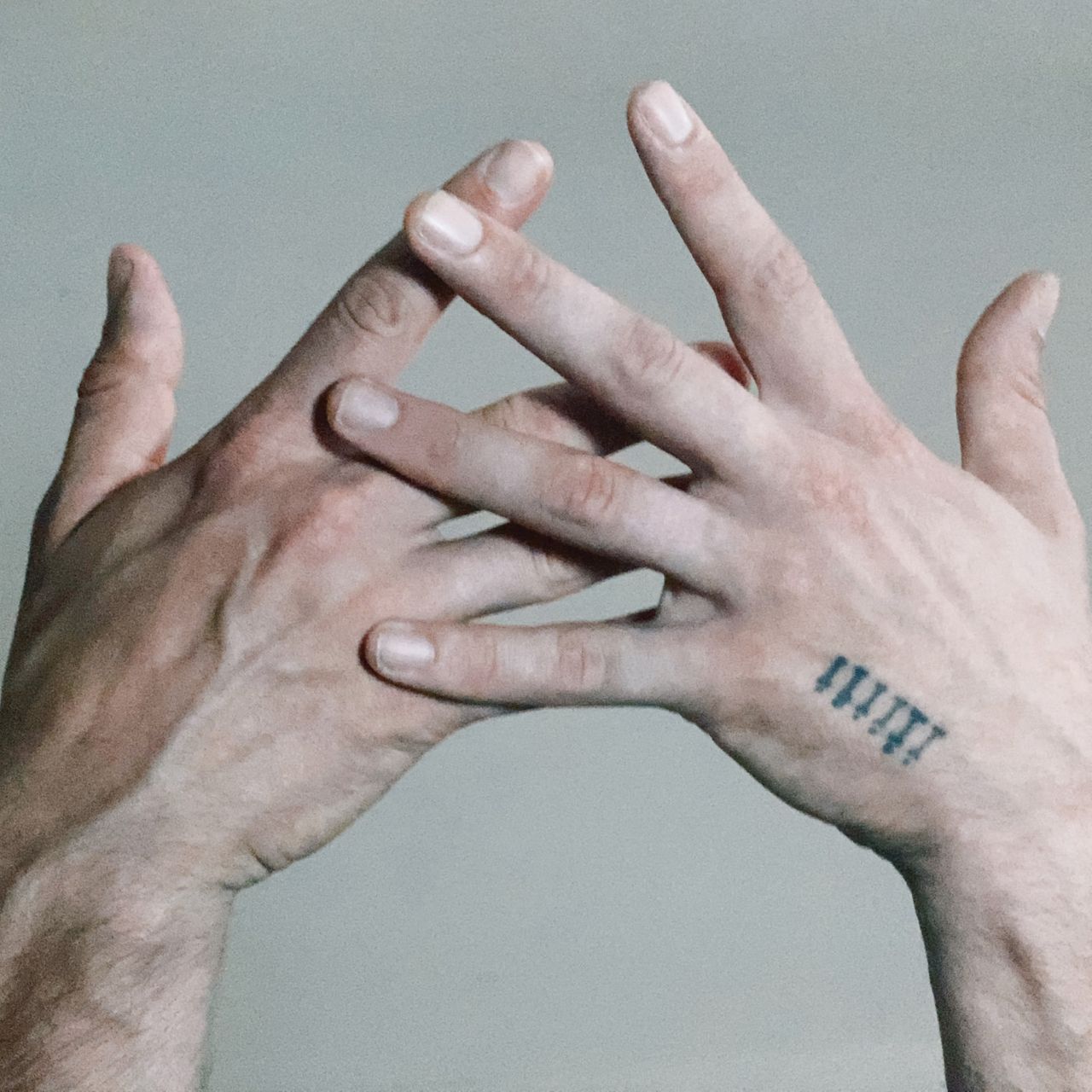Angus Fairbairn used to carry knives. He didn’t mind if he scared people. But that was several identities ago; anyone who meets the Mancunian poet, saxophonist, and band leader today would be shocked by the revelation. Under his nom de scène, Alabaster DePlume, he disarms with his earnestness, his gentleness, his vulnerability. “Every time I say ‘I,’ it means something different. Because I grow,” he says. “People don’t last. We don’t want them to last. We want them to grow.” To remind himself of this, DePlume memorializes his past selves with the six small tattoos of stick men that feature on the cover of his new album. Now, he’s more likely to wield metaphors than knives, as in its title: A Blade Because a Blade Is Whole.
Blades are symbols of forgiveness for DePlume, less about sharp edges than integrity and strength. “The blade, that divides, is whole,” he writes in his recent poetry book, Looking for my value: prologue to a blade. “Healing is the forming of a whole.” These thoughts arose in the wake of his gorgeous 2022 album, GOLD, on which he encouraged his audience to “go forward in the courage of your love” and be “brazen like a baby.” A Blade is that record’s de facto sequel, a quiet moment of reflection after a bold call to action. It’s more restrained but just as urgent: a pen scratching out a manifesto rather than a rallying cry through a megaphone.
DePlume has become a mainstay at London jazz hub Total Refreshment Centre over the past decade, flourishing in its communal atmosphere. Whereas GOLD harnessed this energy through spontaneous sessions with unrehearsed musicians, A Blade is carefully composed and arranged. That doesn’t mean the record is any less collaborative; string and vocal arrangements by Macie Stewart, Donna Thompson, and Momoko Gill are crucial to its easy grandeur. On opener “Oh My Actual Days,” saxophone, piano, and violin limn an extravagant but soothing world—a palace in which you can kick off your shoes. At the song’s climax, DePlume traces out figures with his sax, rising higher and higher but never straining, backed by crashing cymbals and dizzying strings. The main melody returns with a single voice that guides the band through a careful diminuendo, a perfect introduction to DePlume’s message: These are our days on Earth, our actual days, limited in number and every one precious. Remember to savor their magnificence and to navigate them with care.
